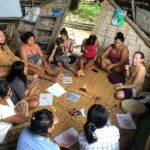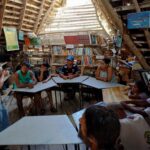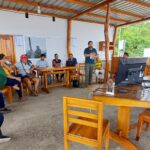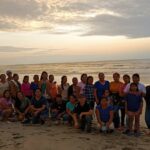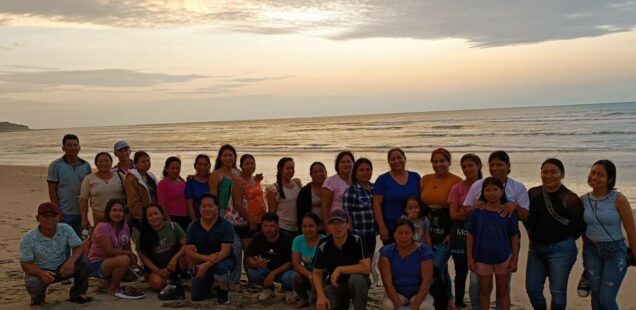
The self-strengthening of the marine-coastal territory of life of the municipality of Puerto Cabuyal (Ecuador) progresses with the construction of its Life Plan.
This article offers a ‘mid-term report’ for a self-strengthening initiative carried out by the municipality of Puerto Cabuyal, in Ecuador, with the support of the Feyerabend Foundation, the Fundación Ser Ambiente and others. The initiative is centred around the development of the Life Plan for the community and its marine-coastal territory of life. All began about a year ago with a review of existing information and the use of a mapping tool that, with the help of a volunteer geographer from France Volontariares, allowed to geo-reference more than 300 points throughout the territory of the municipality. The President of the municipality and many of its inhabitants took part in this process, which allowed everyone to reflect about how and why territorial governance and management are crucial for subsistence, but also for the respect of local rights. This learning process, which has been participatory, bottom-up and respectful of community dynamics, also allowed Puerto Cabuyal to register its territory as a ‘territory of life’.
The results of the geospatial and physical environment analyses reveal that in recent years the territory has been degrading and, in particular, fish and shrimp catches have severely declined, affecting both subsistence and income. An alternative would be to engage in agriculture, but monocultures would likely degrade the local forest. A central aspect of developing a Life Plan is to reflect on sustainable productive alternatives compatible with conserving biodiversity that, as all agree, is the greatest local treasure. In the analysis and reflection, women have taken an unprecedented central role, which is most appropriate as only they seem to be able to motivate the community to act for the future of its territory of life… before it is too late.
So far, the residents who took part in the collective reflection on the future are committed to consolidate and decide their Life Plan, establish the rules of access to their territory and resources, the kind of uses that are appropriate, etc. This is important for them but also to orient future donors and collaborators concerned about conservation, sustainable livelihoods and wellbeing. As both the municipality and the Fundación Ser Ambiente are Members of the ICCA Consortium and part of the Ecuador ICCA Network, it has been natural for the community to use the Consortium’s self-strengthening process guide. It has also been possible to meet other indigenous members of the Consortium in Ecuador, such as the Cofán, Seikpai and Kichwa Nationalities of the Amazon region, and exchange experiences with them on their history, and on ways to conserve and make sustainable use of biodiversity. The Fundación Ecuatoriana por la Equidad has supported these exchanges and more, and the ALDEA organization has facilitated important gender analysis and activities.

